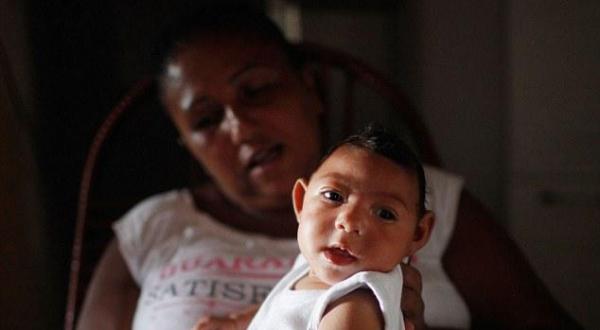Women in the epicenter of the Zika outbreak in Brazil, the joy of pregnancy has given way to fear, Reuters reported.
In the sprawling coastal city of Recife, panic has struck maternity wards since Zika – a mosquito-borne virus first detected in the Americas last year – was linked to a wave of brain damage in newborns. There is no vaccine or known cure for the disease yet.
The Shocking images of babies with birth defects have resulted in many women to reconsider getting pregnant.
In about four-fifths of cases, Zika causes no noticeable symptoms so women have no idea if they have contract it during pregnancy. Test kits for the virus are only effective in the first week of infection and only available at private clinics at a cost of 900 reais, more than the monthly minimum wage.
The rapid spread of Zika to 22 countries in the Americas has pushed governments to advise women to delay having children. El Salvador recommended women to avoid getting pregnant for two years. It has also triggered a debate on liberalizing abortion in the region, where many countries have strict laws.
“Fear is growing among women because this is a new disease that we know little about. We don’t have many answers,” said Adriana Scavuzzi, a gynecologist at the IMIP hospital.
Brazil’s health ministry said that as of Jan. 23 , 270 confirmed cases of microcephaly and a further 3,448 suspected cases since October are being investigated , most of them in the Americas.
World Health Organization (WHO) officials say there is no scientific proof that Zika stunts the development of the fetus, causing microcephaly, but it is strongly suspected.
Ninety percent of children born with the condition will have retarded mental and physical development, and will need specialized care for the rest of their lives. There is no certainty what they will be able to see or hear, or when they will learn to walk and talk.
“It will be worse than the Thalidomide generation because then the cause could be withdrawn from the market,” experts said. “But how do you withdraw from circulation a mosquito that has lived with us for so long?”
Zika, first identified in Uganda in 1947 and unknown in the Americas until discovered in Brazil last year, causes mild fever and body aches, symptoms that disappear in five days.
With a health crisis on its hands, Brazil’s government says women who want to get pregnant should discuss the risks with their doctors, but preferred them to rather just delay.
Instead, the government plans to hand out insect repellent to tens of thousands of low-income pregnant women and is stepping up an offensive to eradicate the mosquito with the help of the army.
Public health experts expect Zika will lead to an increase in illegal abortions. An estimated 1 million are already carried out every year in Brazil.
Botched procedures in clandestine clinics using sharp tools, over-the-counter medicines and no sterilization are already a major cause of maternal deaths.
“Zika is a health catastrophe and a terrifying menace for pregnant women,” said Daniel Becker, a pediatrician and public health expert in Rio de Janeiro. “People will look for abortion.”

